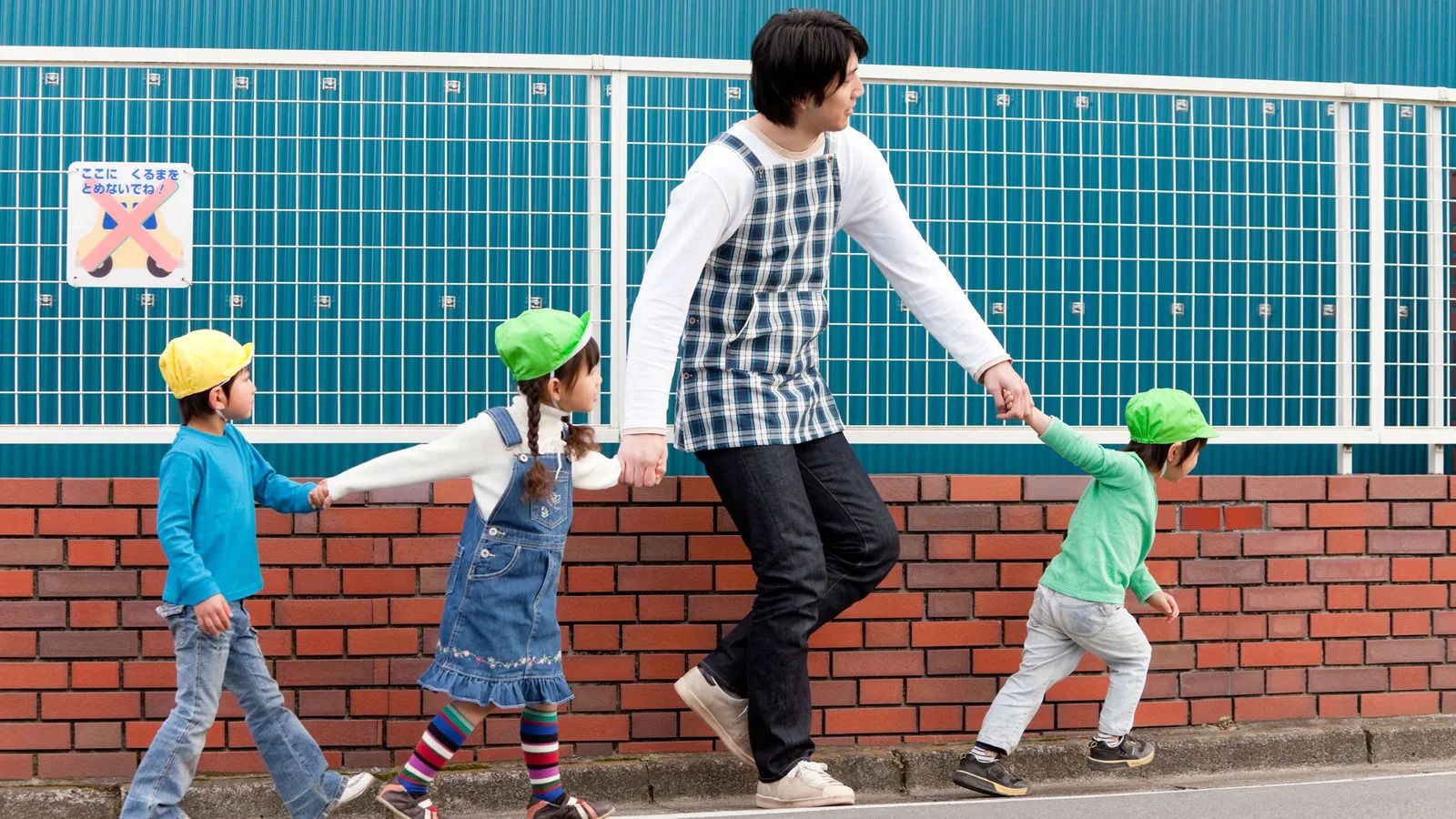
How looking young can shape your career
It was 4 April 1911: William F Murray’s first day at work. He had been sworn in to the 62nd United States Congress, and was ready to embark on an illustrious career in politics. There was just one problem.
Murray was 29 years old, making him the youngest representative at the time. He had been endowed with unusually boyish features, and styled his hair with a neat side parting – kind of like he was posing for a school photo. Next to his greying, pot-bellied colleagues, it would be fair to say that he didn’t really look the part.
That same day, the chairman barked an order at him to fetch a book, after mistaking him for one of their House Pages – a role usually fulfilled by secondary-school students. “All right, Bill,” said Murray, “but the next time kindly address me as ‘the member from Massachusetts’.”
In almost every other area of life, looking young is highly coveted – by 2022, the anti-ageing industry is projected to be worth an estimated $260bn (£188bn), with some individuals now spending more on rejuvenating skincare each month than their mortgage.
But in the office, it’s a different story. There isn’t currently any data on exactly how many people are negatively affected by their youthful appearance each year – but the internet is awash with harrowing anecdotes about embarrassments and misunderstandings. There’s the teacher who was loudly accused of being in the staff room without permission, and even asked for ID; the brewery worker mistaken for a "little girl" by a customer; and the many, many doctors assailed on a daily basis by alarmed patients observing “you look so young!”.
In fact, there’s mounting evidence that appearing younger than your age isn’t just inconvenient – it can have a radical impact on the way your competence is viewed, and even determine the kind of job you do in the first place. From nudging younger-looking people into more caring roles to not-so-subtly policing whether you’re considered suitable for public office, studies suggest that this invisible factor can make or break careers.

Research shows that appearing younger than your age isn’t just inconvenient – it can have a radical impact on the way your competence is viewed
Too cute?
There are several underlying reasons people might feel that they’re judged to be younger than their years: you might be petite or have a short stature, or style yourself in fashionable clothes, for example.
But the best-studied route is having a baby face. The “babyface overgeneralisation effect” was first discovered in the 1980s, and occurs when possessing babyish facial features leads people to assume that you have corresponding personality traits.
“[The babyface] is really an overall constellation of features,” says Leslie Zebrowitz, Professor Emerita of Social Relations at Brandeis University, US, who co-discovered the phenomenon. She explains that this usually includes a flat, round face, small jaw, button nose and wide doe-eyes, while more mature-looking individuals generally have smaller eyes, more angular cheekbones, larger noses and stronger brow-ridges. It's well-established that people with baby faces look young because they literally remind people of babies.
Oddly, the effect applies no matter how old you actually are – or whether you have the plump, airbrushed skin of a model in a moisturiser advert or the slightly more weather-beaten visage of a lifelong sunworshipper. The facial structure of baby-faced people means they usually look young relative to others in the same age group, meaning that the associations this appearance comes with can still have an impact well into middle age and later life.
Baby-faced people are seen as having less “personal control” than others in young and middle adulthood, along with people who are considered unattractive or overweight
There are some upsides to reminding people of a cute baby – the babyface effect is thought to elicit the same protective behaviours that help us shelter these vulnerable members of society, so you’re automatically assumed to be warm, trustworthy and kind. As you’d expect, babyfaces are ubiquitous in children’s cartoons, characters in adverts, sports mascots and cuddly dog breeds – particularly pugs.
Baby-faced people are also more likely to be found in certain jobs. In one study, they were more likely to be considered for a teaching position at a day-care centre that explicitly required candidates to be warm and submissive.
The tie into success
Baby-faced people have easier lives in many ways: they’re widely thought of as more attractive, even in demographics as distinct as Aché hunter-gatherers from Paraguay and university students from Russia. But they’re also expected to be lacking in certain traits that can be essential for career progression, or working in some professions entirely.
For example, the same research that identified the bias in favour of baby-faced applicants for teaching positions also found that mature-looking people were generally preferred for the position of director, which called for dominance and the ability to make harsh decisions. Perhaps as a result, people who look young for their age tend to have lower-status jobs instead which lack this kind of authority.
This might be because baby-faced people are seen as having less “personal control” – defined as competence, mastery or the ability to enact their goals – than others in young and middle adulthood, along with people who are considered unattractive or overweight.
 Because of the way you're perceived in interviews and by peers, your
features can inadvertently push you down a certain career path
Because of the way you're perceived in interviews and by peers, your
features can inadvertently push you down a certain career path
Not only are people who look older more likely to be considered for high-status managerial roles, they're also deemed to be more suitable for jobs requiring a higher level of educational attainment. “So, mature-faced people have similar outcomes in the job market to high achievers,” says Zebrowitz.
In one study, men deemed to have a baby face were most likely to have jobs as childcare workers, elementary school teachers, teacher aides and members of the clergy, and least likely to be judges, truck drivers, policemen and foremen. For women, the most common careers were similar; elementary school teachers, kindergarten teachers, teaching aides and nursing aides, while those who were more mature-looking tended to hold jobs as computer systems analysts, law teachers, athletes and foremen.
The effect is found among politicians as well as the leaders of Fortune 500 companies; the latter generally have more dominant facial features than the general population or people in other high-status jobs, such as professors. This appears to be based on pure perception, because companies with CEOs that look the part are not more likely to do better than others.
However, there are exceptions. Surprisingly, black men heading companies at the same level are more likely to have baby-faced features. One idea is that this is down to implicit racism, which means that black men are generally seen as threatening, so having a baby face is an advantage because it softens these impressions.
Men deemed to have a baby face were most likely to have jobs as childcare workers, elementary school teachers, teacher aides and members of the clergy
Other research has established that, consistent with the stereotype of baby-faced people being warm and trustworthy, the CEOs of non-profit charities are more likely to have this type of face. On average, the ones with more powerful-looking CEOs raise less money.
In the real world, the contrasting treatment of young-looking workers often ties in with how people are treated based on their actual age. Younger workers might be criticised more than older ones, belittled using derogatory language – such as describing them as a "young whippersnapper” – paid less than older colleagues for the same role, overlooked for promotion or unfairly dismissed.
In fact, while Western society has a well-documented culture of fetishising youth and marginalising the elderly, ageism against younger workers is increasingly being recognised. The 2019 Diversity & Inclusion Study by the job-search website Glassdoor found that, in the UK, 18-to-34 year olds are almost twice as likely to report being discriminated against based on their age than older groups.
Reframing our thinking
In the UK, there are some legal protections against age-related bias, regardless of whether it’s based on your actual age or the perception of it – known as “discrimination by perception”.
Meanwhile in the US, there is currently no specific law to prevent prejudice on the basis of facial appearance, though there has been some debate about how this could be implemented. As early as 1987, a Harvard Law Review article proposed that the existing legislation should be modified to prevent discrimination due to “the largely immutable aspects of bodily and facial appearance”.
 Russian university students are among the baby-faced who are widely
considered more attractive – but their looks can mean they face specific
challenges, too
Russian university students are among the baby-faced who are widely
considered more attractive – but their looks can mean they face specific
challenges, too
As with other forms of bias, it’s possible that people from certain racial backgrounds may be more at risk. It's been suggested that part of the reason Asian people stereotypically look young for their age might be because baby-faced traits are more common in this group.
However, there are a couple of things young-looking people can do to adjust the way they’re seen in the workplace.
The most obvious option is to change your appearance. Research has shown that 20-something women look older when they wear makeup – though surprisingly, this is not true for older age groups – and adding makeup, trousers and jewellery can boost how competent a woman seems as a leader. On the other hand, people view men with beards as older and higher status than those who are clean-shaven. They're also generally seen as more capable.
The question is, do you want to alter how you look, to overcome the irrational biases of other people?
As it happens, there is an alternative. Nicola Simpson, an executive career coach based in London, says she regularly encounters this issue – but she’s not always convinced that how her clients look is actually the underlying issue. “This comes up quite often when clients come to a coaching session lacking in confidence and feeling a sense of imposter syndrome,” she says.
In Simpson’s experience, people can struggle with perceptions of how young they look in any profession, though it’s slightly more common among management consultants and people in leadership roles. “Maybe they’re at a point in their career where they want to convey leadership and gravitas, and they feel that they look young for their years – and that this is being held against them,” says Simpson, “but equally they're often feeling ‘maybe I am too young to be in a managerial position’.”
To overcome this, Simpson tries to help her clients with what is within their control. Rather than dwelling on how the outside world views them, she tends to focus on helping them to understand where their anxieties are coming from. “Our conversations are more about what they could do to feel more confident – bringing in tools to reframe their thinking into something that's much more positive and supportive.”
Simpson suggests trying to be aware of when you’ve been triggered by fears about how you’re perceived, and consciously shifting your thoughts to a more positive outlook. If you project confidence, you'll automatically seem more competent – regardless of what biases are really at work in the minds of your colleagues.











